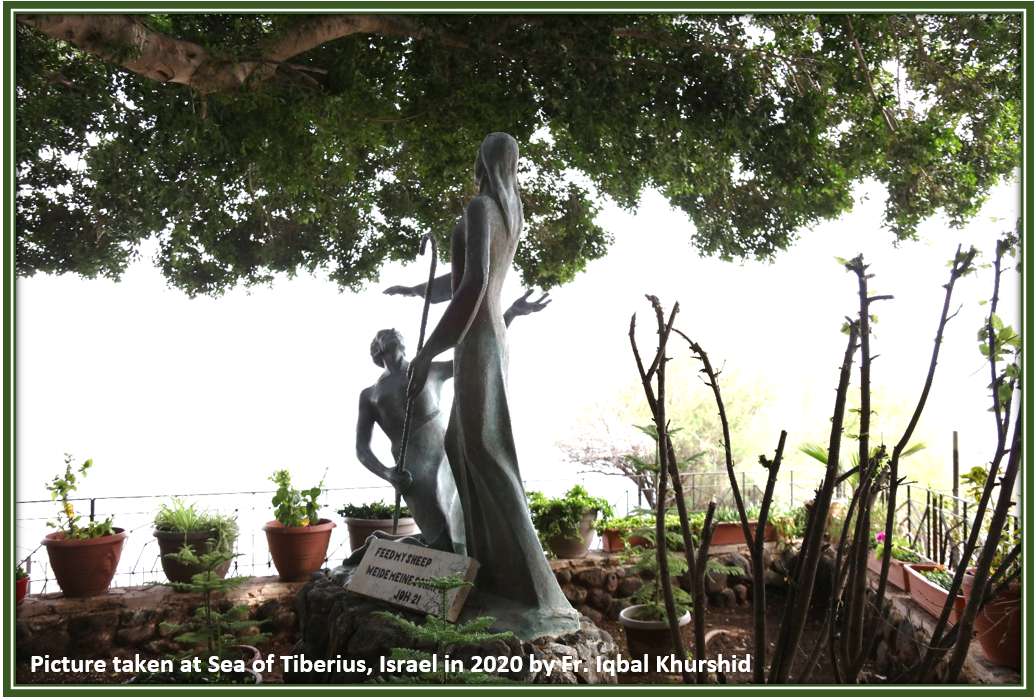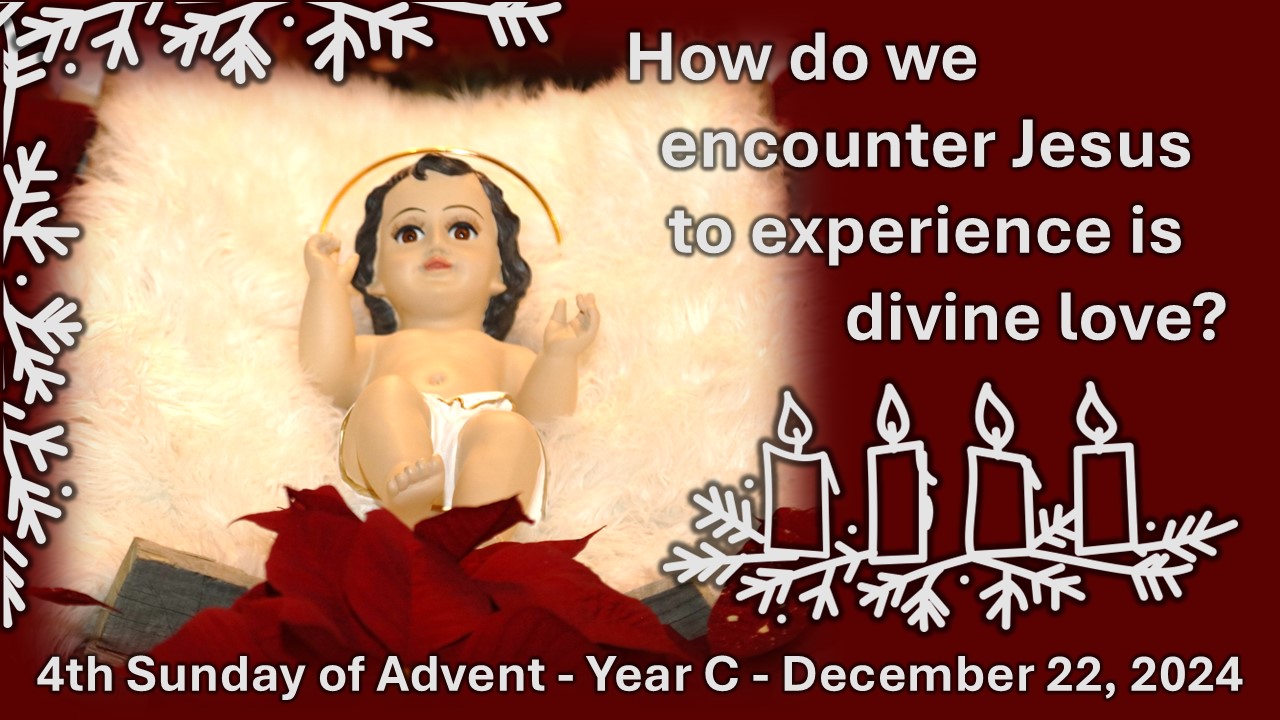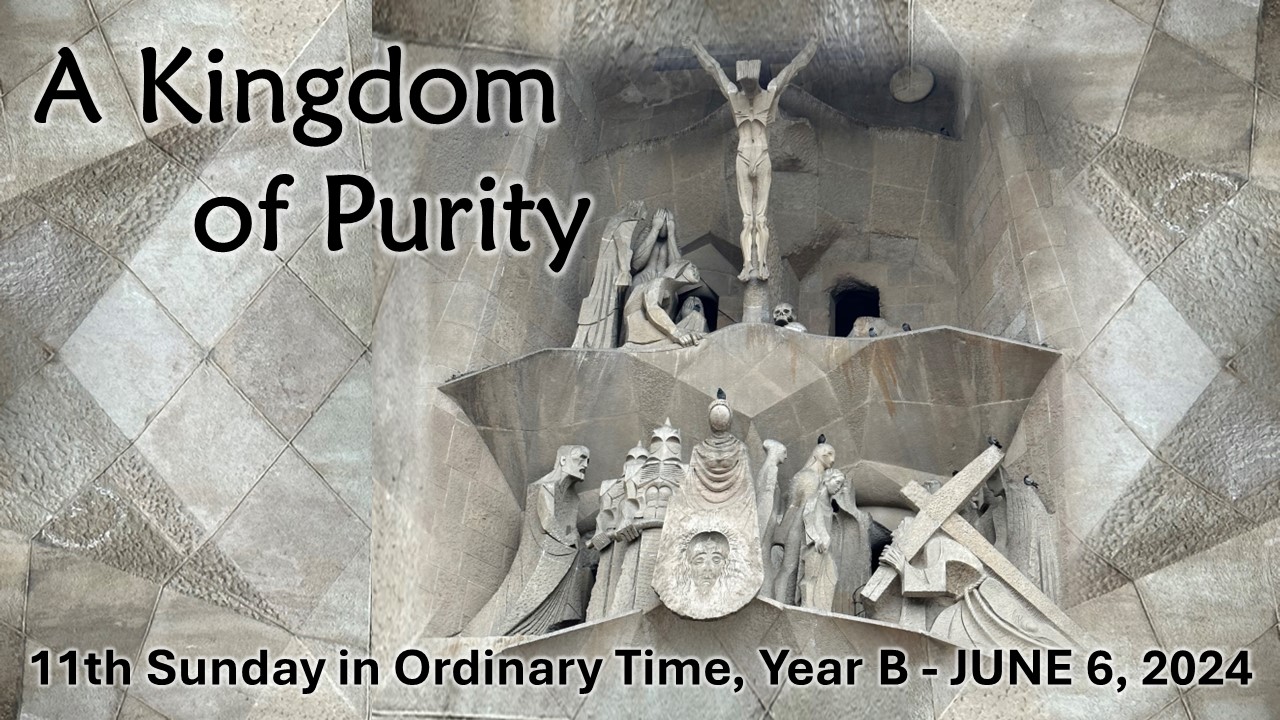
3rd Sunday of Easter Year C ~ Sunday, May 1, 2022
STANDING FOR THE LORD
The season of Easter is the season of celebrating life not death because our Lord has won the victory over the death. He is the author of life and came to give life and life in abundance as St. John says. The New Testament contains many accounts describing for us the experience of the original disciples of Jesus as they found faith through their encounter with their Risen Lord. The writers of the gospels are so certain of the meetings that laid the foundations of Christian faith that they do not attempt to harmonise the details of the stories they are handing on. They pass on these stories in order to share the wonder of finding faith and new purpose through an encounter with the Lord’s triumph – a wonder that can hardly be captured by a single account. As our Easter liturgies recall these stories, we are like a family group listening to one another sharing personal recollections of a past events that meant a great deal to the whole family. Given from different points of view, these recollections bring a far fully appreciation of what took place. Last Sunday we heard the story as it was recalled in the community of John’s gospel that Jesus appeared to his disciples and breathed on them the Spirit with the words “Peace be with you. As the Father has sent me, so I send you.” And the dialogue with St. Peter, is a wake up call for us to stand for the Lord.
A well-respected scholar and avowed atheist was speaking at a large outdoor picnic.
He spoke for two and a half hours attempting to prove that the resurrection of Jesus was false. He quoted scholar after scholar and book after book. He concluded that since there was no such thing as the historical resurrection, the religious tradition of the church was groundless and emotional nonsense. He said it was based on a relationship with a risen Jesus, who never rose from the dead in any literal sense.
He then asked if there were any questions.
After about thirty seconds, an old preacher stood up. “Sir, I have one question,” he said, as all eyes turned toward him.
He reached into his sack lunch and pulled out an apple he had been eating. “My question is a simple question,” he said before taking another bite out of the apple.
He continued, “I haven’t read all the books you have, and I can’t recite the Scriptures in the original Greek.” He took a couple more bites of the apple and said, “I don’t know a thing about Niebuhr and Heidegger.”
He finished the apple and said, “All I want to know is…this apple I just finished, was it tart or sweet?”
The speaker paused for a moment and answered in exemplary scholarly fashion, “I cannot possibly answer that question, for I haven’t tasted your apple.”
The white-haired preacher dropped the core of his apple into his crumpled paper bag and said calmly, “Neither have you tasted my Jesus.”
Easter stories are there to help us to taste Jesus who has risen from the dead to make sharers of his resurrection “Taste and see that the LORD is good! Oh, the joys of those who take refuge in Him! If you have, rejoice in the hope of the resurrection that your faith in Him brings”, as the Psalmist says (Psalm 34:8-9). And St. John says in his First Letter “And we know that the Son of God has come, and He has given us understanding so that we can know the true God. And now we live in fellowship with the true God because we live in fellowship with his Son, Jesus Christ. He is the only true God, and He is eternal life” (1 John 5:20)
St. Leo the Great writes “My dear brethren, there is no doubt that the Son of God took our human nature into so close a union with himself that one and the same Christ is present, not only in the firstborn of all creation, but in all his saints as well. The head cannot be separated from the members, nor the members from the head. Not in this life, it is true, but only in eternity will God be all in all, yet even now he dwells, whole and undivided, in his temple the Church. Such was his promise to us when he said: See, I am with you always, even to the end of the world. And so all that the Son of God did and taught for the world’s reconciliation is not for us simply a matter of past history. Here and now, we experience his power at work among us. Born of a virgin mother by the action of the Holy Spirit, Christ keeps his Church spotless and makes her fruitful by the inspiration of the same Spirit. In baptismal regeneration she brings forth children for God beyond all numbering. These are the sons of whom it is written: They are born not of blood, nor of the desire of the flesh, nor of the will of man, but of God. In Christ Abraham’s posterity is blessed, because in him the whole world receives the adoption of sons, and in him the patriarch becomes the father of all nations through the birth, not from human stock but by faith, of the descendants that were promised to him. From every nation on earth, without exception, Christ forms a single flock of those he has sanctified, daily fulfilling the promise he once made: I have other sheep, not of this fold, whom it is also ordained that I shall lead; and there shall be one flock and one shepherd”.
He continues to say “Although it was primarily to Peter that he said: Feed my sheep, yet the one Lord guides all the pastors in the discharge of their office and leads to rich and fertile pastures all those who come to the rock. There is no counting the sheep who are nourished with his abundant love, and who are prepared to lay down their lives for the sake of the good shepherd who died for them. But it is not only the martyrs who share in his passion by their glorious courage; the same is true, by faith, of all who are reborn through baptism. That is why we are to celebrate the Lord’s paschal sacrifice with the unleavened bread of sincerity and truth. The leaven of our former malice is thrown out, and a new creature is filled and inebriated with the Lord himself. For the effect of our sharing in the body and blood of Christ is to change us into what we receive. As we have died with him and have been buried and raised to life with him, so we bear him within us, both in body and in spirit, in everything we do”.
It is amazing to be called “we are an Easter people and Alleluia is our slogan” according to St. Augustine of Hippo? The Easter people always stand for Lord as we remember the great love and sacrifice of the Lord. Is it easy to follow Jesus in the secular world? Our answer could be “no” but the Lord helps us to stand for him because nothing separates us from his love. (please read Romans 8).
During this month of May, we can follow two greatest personalities; St. Joseph whose feast we are going to celebrate on May 1st as “St. Joseph the Worker”. He is best known for being silent righteous man and a protector of the Saviour who stood strong in the midst of trials and tribulation. Second personality we can follow is Blessed Virgin Mary as we observe the month of May as the month of the Rosary. She knew her cultural problems but stood for faith and later under the foot of the Cross to encourage and strengthen her Son in his suffering. Do we stand for him?
In the First Reading, what strikes us is the strength of Peter and the other Apostles. In response to the order to be silent, no longer to teach in the name of Jesus, no longer to proclaim his message, they respond clearly: “We must obey God, rather than men”. And they remain undeterred even when flogged, ill-treated, and imprisoned. Peter and the Apostles proclaim courageously, fearlessly, that they have received: The Gospel of Jesus. And we? Are we capable of bringing the Word of God into the environment in which we live? Do we know how to speak of Christ, of what he represents for us, in our families, among the people who form part of our daily lives? Faith is born from listening and is strengthened by proclamation. (please read 2 Timothy 4:1-6) But let us take a further step: the proclamation made by Peter and the Apostles does not merely consist of words: fidelity to Christ affects their whole lives, which are changed, given a new direction, and it is through their lives that they bear witness to the faith and to the proclamation of Christ.
A few months ago, my husband and I were invited to spend the weekend at his employer’s home. I was nervous about the weekend. The boss was very wealthy, with a fine home on the waterway, and cars costing more than our house. The first day and evening went well, and I was delighted to have this rare glimpse into how the very wealthy live.
My husband’s employer was quite generous as a host and took us to the finest restaurants. I knew I would never have the opportunity to indulge in this kind of extravagance again, so I was enjoying myself. As the three of us were about to enter an exclusive restaurant one evening, the boss was walking slightly ahead of us. He stopped suddenly, looking down on the pavement for a long, silent moment. I wondered if I was supposed to pass him. There was nothing on the ground except a single darkened penny that someone had dropped and a few cigarette butts.
Still silent, the man reached down and picked up the penny. He held it up and smiled, then put it in his pocket as if he had found a great treasure.
How absurd! What need did this man have for a single penny? Why would he even take the time to stop and pick it up? Throughout dinner, the entire scene nagged at me. Finally, I could stand it no longer. I causally mentioned that my daughter once had a coin collection and asked if the penny he had found had been of some value.
A smile crept across the man’s face as he reached into his pocket for the penny and held it out for us to see. I had seen many pennies before! What was the point of this?
“Look at it.” he said. “Read what it says.”
I read the words, “United States of America.”
“No, not that; read further.”
“One cent?”
“No, keep reading.”
“In God We Trust?”
“Yes!”
“And?”
“And if I trust in God, the name of God is holy, even on a coin. Whenever I find a coin, I see that inscription. It is written on every single United States coin, but we never seem to notice it! God drops a message right in front of me telling me to trust Him. Who am I to pass it by? When I see a coin, I pray. I stop to see if my trust is in God at that moment. I pick the coin up as a response to God, that I do trust in Him. For a short time, at least, I cherish it as if it were gold. I think it is God’s way of starting a conversation with me. Lucky for me, God is patient and pennies are plentiful!
When I was out shopping today, I found a penny on the sidewalk. I stopped and picked it up and realized that I had been worrying and fretting in my mind about things I can not change. I read the words, “In God We Trust,” and had to laugh. Yes, God, I get the message. It seems that I have been finding an inordinate number of pennies in the last few months, but then, pennies are plentiful! And God is patient.
In today’s Gospel, Jesus asks Peter three times to feed his flock, to feed it with his love, and he prophesies to him: “When you are old, you will stretch out your hands, and another will gird you and carry you where you do not wish to go”. We cannot feed God’s flock unless we let ourselves be carried by God’s will even where we would rather not go, unless we are prepared to bear witness to Christ with the gift of ourselves, unreservedly, not in a calculating way, sometimes even at the cost of our lives. We all have to proclaim and bear witness to the Gospel as Jesus said “you will be my witnesses to the end of age”. We should all ask ourselves: How do I bear witness to Christ through my faith? Do I have the courage of Peter and the other Apostles, to think, to choose and to live as a Christian, obedient to God? To be sure, the testimony of faith comes in very many forms, there is a variety of colours and shades; yet they are all important, even those which do not stand out.
The passage from the Book of Revelation speaks to us of worship: the myriads of angels, all creatures, the living beings, the elders, prostrate themselves before the Throne of God and of the Lamb that was slain, namely Christ, to whom be praise, honour and glory. I would like all of us to ask ourselves this question: “do we worship the Lord? Do we turn to God only to ask him for things, to thank him, or do we also turn to him to worship him? Worshipping the Lord means giving him the place that he must have; worshipping the Lord means stating, believing – not only by our words – that he alone truly guides our lives; worshipping the Lord means that we are convinced before him that he is the only God, the God of our lives, the God of our history. (Please read Revelation 6)
In God’s great plan, every detail is important, even yours, even my humble little witness, even the hidden witness of those who live their faith with simplicity in everyday family relationships, work relationships, friendships. There are the saints of every day, the “hidden” saints, a sort of “middle class of holiness”. But in different parts of the world, there are also those who suffer, like Peter and the Apostles, on account of the Gospel; there are those who give their lives in order to remain faithful to Christ by means of a witness marked by the shedding of their blood. “Blessed are you when people revile you and persecute you and utter all kinds of evil against you falsely on my account. Rejoice and be glad, for your reward is great in heaven, for in the same way they persecuted the prophets who were before you” St. Matthew quotes the words of the Saviour.
Let us all remember this: one cannot proclaim the Gospel of Jesus without the tangible witness of one’s life. Those who listen to us and observe us must be able to see in our actions what they hear from our lips, and so give glory to God! I am thinking now of some advice that Saint Francis of Assisi gave his brothers: preach the Gospel and, if necessary, use words. Preaching with your life, with your witness. Inconsistency on the part of pastors and the faithful between what they say and what they do, between word and manner of life, is undermining the Church’s credibility. The Evangelist stresses the fact that “no one dared ask him: ‘Who are you?’ – they knew it was the Lord”. And this is important for us: living an intense relationship with Jesus, an intimacy of dialogue and of life, in such a way as to recognize him as “the Lord”.
Let me conclude my reflection with a story which already I have shared with you…
Before U were thought of or time had begun,
God had stuck U in the name of His Son.
And each time U pray, you’ll see it’s true,
You can’t spell out JesUs and not include U.
You’re a pretty big part of His wonderful name,
For U, he was born; that’s why He came.
And His great love for U is the reason that he died,
It even takes U to spell crUcified.
Isn’t it thrilling and splendidly grand,
He rose from the dead with U in His plan.
The stones split away, the gold trUmpet blew,
and this word ressUrection is spelled with a U.
When Jesus left the earth at His upward ascension,
He felt there was one thing He just had to mention.
“Go into the world and tell them it’s true,
That I love them all-Just like I love U.
So many great people are spelled with a U,
Don’t they have the right to know JesUs too?
It all depends now on what U will do,
He’d like them to know, but it all starts with U.
Will U pass it on?
JesUs Loves U!!!
Do we stand for him to say Jesus I love you?
Other Sermons In This Series

4TH SUNDAY OF ADVENT YEAR C ~ DECEMBER 22, 2024
December 19, 2024

11th Sunday in Ordinary Time, Year B – JUNE 6, 2024
June 14, 2024

Follow the Path to Conversion | December 5, 2021
December 03, 2021

